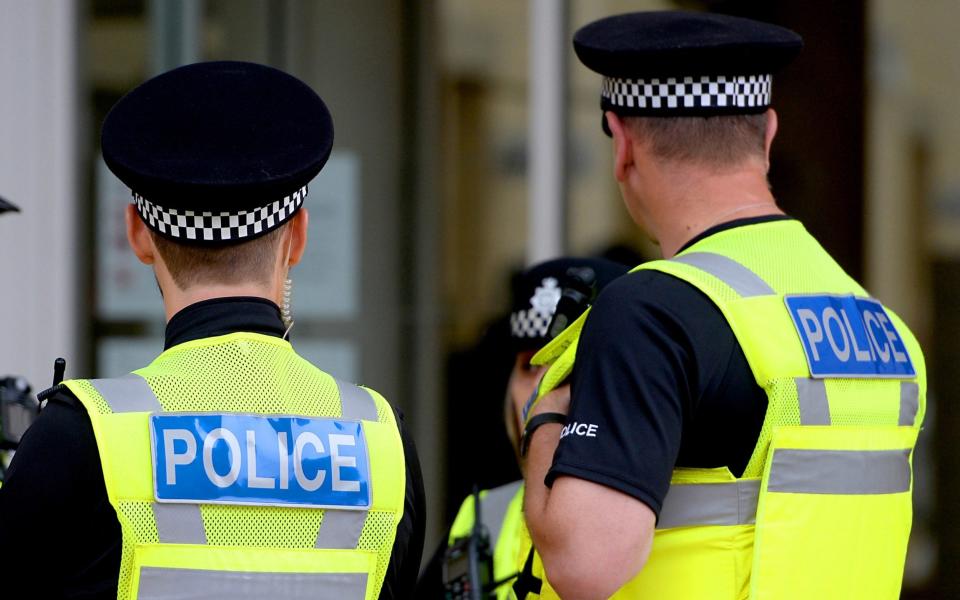Quarter of crime victims refuse to support prosecutions after losing confidence in police

A record quarter of crime victims refused to support prosecutions as fears grow that they are losing confidence in the ability of the police to solve crimes.
Home Office figures showed that investigations into 25.3 per cent of crimes were halted after the victims said they would not support the police – nearly treble the proportion in 2014-15, when the data was first collected. It was up from 22.6 per cent in the last year.
The disclosure follows warnings from HM Inspector of Police that the public has "rumbled" that the chances of some high-volume crimes, like theft and criminal damage, being solved are "extremely limited".
Only 7.4 per cent of crimes resulted in a charge or a summons, compared with 15.5 per cent in 2014-15, according to the Home Office data, which was published on Wednesday.
However, the figures also show that there are similarly high figures for sex offences – where 43 per cent did not support action – and violence against the person, where it was 49 per cent.
David Wilson, a professor of criminology at Birmingham City University, said victims were increasingly questioning whether it was worthwhile to pursue a prosecution.
Meanwhile, others in sexual or violent crimes might know their attacker and would be deterred by either fear of revenge or the impact on someone they knew.
"The worrying fact has got to be that, in the absence of formal justice, the public starts to realise that so little of these complaints or reported offences are going through the criminal justice system that instead they look to informal retribution," said Prof Wilson.
Earlier this year, HM Inspector of Constabulary Matt Parr warned that the failure to solve high-volume crimes was having a corrosive effect on the long-term relationship between the public and police.
He added: "There are some worrying trends – victims of domestic abuse or sexual assault, where victims are no longer supporting the prosecution – is a more complex and worrying issue."
COMMENTARY BY DAME VERA BAIRD, VICTIM'S COMMISSIONER
The increase in the percentage of victims withdrawing support for a prosecution is very worrying and should be seen as part of an ongoing trend. It tells us there is falling confidence in our justice system, either to deliver justice or to do so in a timely way.
The reasons for this are various but a major factor is delay. When victims are being told it will take months or years before their case is heard, we cannot be surprised some decide simply to walk away, preferring to get on with their lives rather than have months and months of uncertainty and anxiety whilst waiting for the case to get to court.
Delays also mean more time for victims to be subjected to threats or intimidation. We know many people are frightened to go to court in case they meet the defendant or their friends.
Delays are not the only reason why victims withdraw their support. It can also be because they feel the criminal justice system does not support them. I regularly hear that although police attend a crime quickly and engage well with victims, they fail to keep them updated on how the investigation is progressing.
All too frequently they are not referred to victim services – even though all victims of crime are entitled to this support. And only one in seven of all victims say they remember being offered a victim personal statement. So, it is hardly surprising some feel neglected and disregarded.
Breaking the data down by offence type, there are some particularly disturbing findings. For example, you’ll see from the chart below that almost half of all victims withdraw in violence against the person offences and rape offences investigations, and one in three victims withdraw from sexual offences investigations. These are the most traumatising of crimes, where victims need some sense of closure so that they can recover. Extensive delays in delivering justice are denying them the closure they badly need.
We know the backlog of cases waiting to get to the Crown Court has grown as a result of the Covid-19 lockdown. Despite huge efforts to rebuild court capacity, delays will get worse before things can improve.
If we are to reverse this trend of increasing numbers of victims withdrawing their support for prosecutions, it is essential that when listing cases, we prioritise those involving vulnerable and intimidated victims. This includes expanding the use of pre-recorded cross examination (currently being rolled out across all courts and only for vulnerable victims) to a wider range of victims so that they can quickly give their evidence and move on without having to worry about giving evidence in court.

